Hol Dir den wöchentlichen SPARTANAT-Newsletter.
Dein Bonus: das gratis E-Book von SPARTANAT.
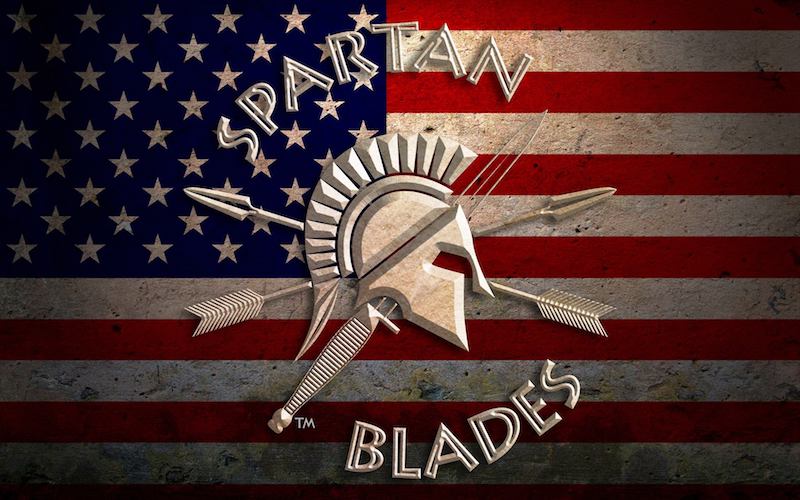
SPARTAN BLADES: Warum wir Messer machen
Mark Carey und Curtis Iovito wissen ein paar Dinge über Risiken und wie man sie eingeht, um Erfolg zu haben. Die pensionierten Unteroffiziere der 1st Special Forces Group (Airborne) gründeten Spartan Blades, LLC vor über acht Jahren, wofür sie hochbezahlte Jobs aufgegeben haben.
Mark Carey und Curtis Iovito wissen ein paar Dinge über Risiken und wie man sie eingeht, um Erfolg zu haben. Die pensionierten Unteroffiziere der 1st Special Forces Group (Airborne) gründeten Spartan Blades, LLC vor über acht Jahren, wofür sie hochbezahlte Jobs aufgegeben haben. Seitdem hat sich Spartan Blades von einem kleinen Start-up zu einer international bekannten Messermarke entwickelt, die kürzlich das American-Made Knife of the Year gewonnen hat. Die Unternehmer waren freundlich genug, eine Stunde mit dem amerikanischen Havok Journal zu verbringen, um ein paar Fragen zu beantworten:
Zur ihren bescheidenen Anfängen:
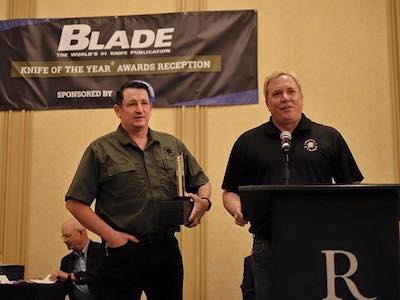 Mark Carey: Wir haben Spartan Blades im Februar 2008 gegründet und im September 2008 für die Öffentlichkeit freigegeben. Die halbjährliche Lücke wurde für die Geschäftsplanung genutzt. Wir haben uns von Anfang an auf den Ausbau unseres Online-Vertriebs- und Händlernetzes konzentriert.
Mark Carey: Wir haben Spartan Blades im Februar 2008 gegründet und im September 2008 für die Öffentlichkeit freigegeben. Die halbjährliche Lücke wurde für die Geschäftsplanung genutzt. Wir haben uns von Anfang an auf den Ausbau unseres Online-Vertriebs- und Händlernetzes konzentriert.
Curtis Iovito: Wir haben den Namen bekommen, weil das erste Paket, das wir verschickt haben, mit einem 100mph-tape (Army-Slang für Panzertape) zusammengehalten wurde. Unser Kunde kommentierte die „spartanische“ Natur des Materials und so wurde der Name geboren.
Warum Messer:
Mark Carey: Als wir uns mit der Gründung unseres Unternehmens beschäftigten, dachten wir an Waffen, Messer oder Zubehör. Nachdem wir unsere Nachforschungen durchgeführt hatten, sahen wir, dass Messer niedrigere Anlaufkosten hatten, so dass es einfacher war, ein Start-up zu gründen. Und wir hatten auch Erfahrung damit.
Curtis Iovito: Ich habe früher Messer als Hobby gebaut. Es war nicht nur eine pragmatische Geschäftsentscheidung, sondern wir haben uns für etwas entschieden, das uns interessiert.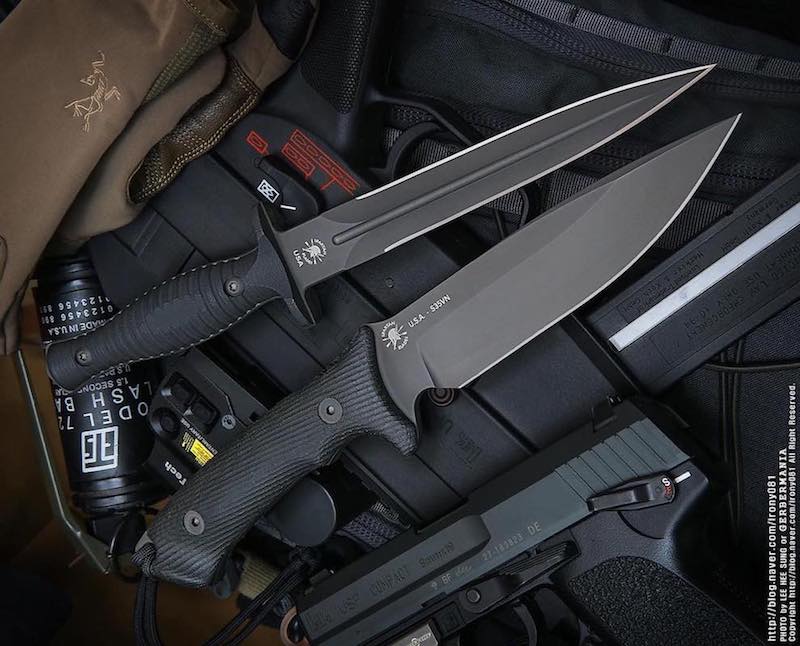 Über Business Planning und Special Forces Erfahrung:
Über Business Planning und Special Forces Erfahrung:
Mark: Wir haben viele der Planungsprinzipien der Spezialeinheiten wie die Missionsanalyse in unserer Geschäftsplanung berücksichtigt. Wir haben unsere eigene unabhängige Forschung durchgeführt, Freunde in der Branche befragt und viele „Open Source“-Informationen gelesen. Wir haben drei Businesspläne geschrieben, bevor wir uns für den letzten entschieden haben. Die von uns gekaufte Businessplanungssoftware kostete etwa 200 Dollar.
Wir haben uns auch an SCORE beteiligt, einer gemeinnützigen Organisation, die von pensionierten CEOs und CFOs geführt wird. Unterm Strich gibt es eine Menge kostenloser und kostengünstiger Hilfe da draußen; man muss nur schauen.
Curtis: Sieh es mal so: Menschen töten ist ein Geschäft und Foreign Internal Defense im Ausland ist es ebenso. Es gibt viele übertragbare Fähigkeiten von Special Forces auf die Wirtschaft; z.B. Entscheidungsfindungsprozesse, Nutzung der Zeit und Ressourcen der Menschen, viel mit wenig tun. Du kennst bereits viele praktische Anwendungen aus deinem Militärdienst.
Mark: Das bringt einen wichtigen Punkt für die Jungs von Special Forces zutage, die das Militär verlassen: Du hast außergewöhnliche Organisations- und Planungsfähigkeiten. Viele Leute können Statistiken analysieren und Fragen stellen, aber oft wissen sie nicht, warum. Wenn sie das Warum nicht verstehen, wissen sie nicht, worauf sie hinarbeiten. SF-Soldaten verstehen das „Warum“. Sie können die grundlegendes Basiswissen erlernen und den Rest OJT (on-the-job). Das Schwierigste für uns war, den zivilen Geschäftsjargon zu lernen.
Curtis: Unterschätze dich selbst oder deinen Wert nicht. Erkenne dich selbst und verstehe deinen Wert, bevor du in Rente gehst. Die Industrie kennt bereits deinen Wert und sie wird kein Problem damit haben, dich für möglicherweise weniger als deinen Wert anzuheuern und deine Fähigkeiten über mehrere Jahre hinweg zu nutzen. Hol dir, was du wert bist.
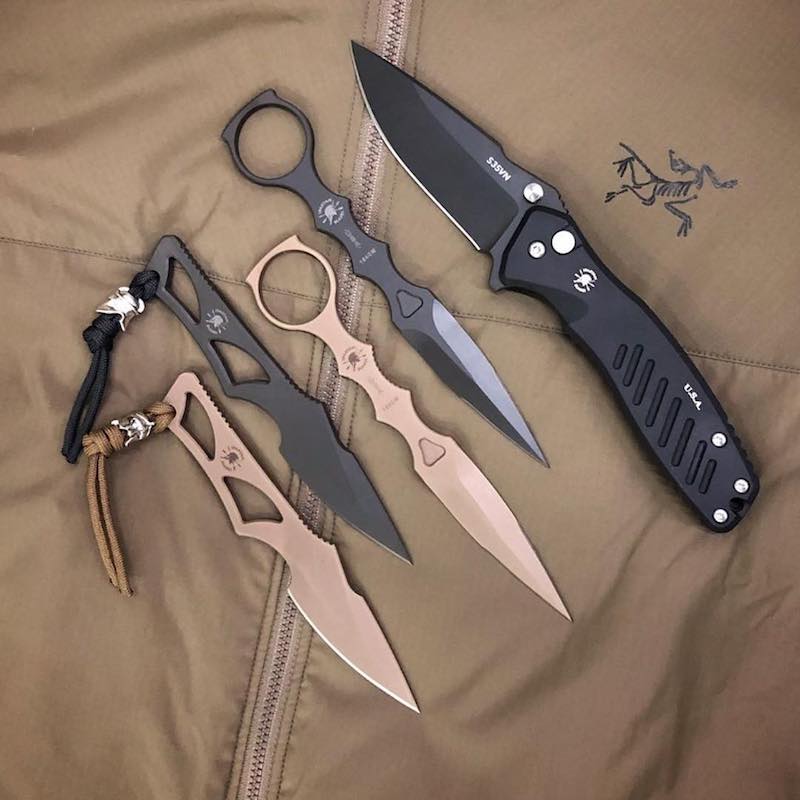 Über Business Lingo:
Über Business Lingo:
Mark: Six Sigma und Lean sind den militärischen Planungsprozessen sehr ähnlich: Truppenführungsverfahren (TLPs), der militärische Entscheidungsfindungsprozess (MDMP), bewusste Nachrichtenaufarbeitung, bewusste Planung. Soldaten, insbesondere SF, haben in diesen Bereichen eine Vielzahl von praktischen Anwendungen.
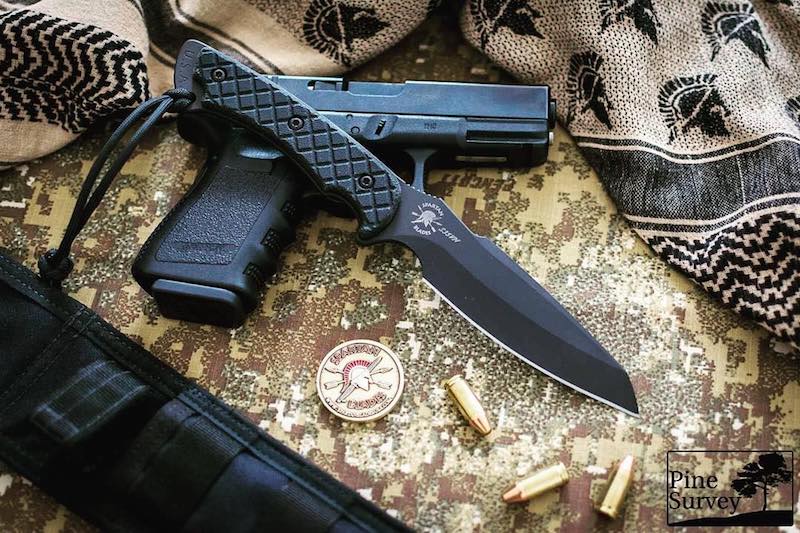 Wie sich die Messerindustrie unterscheidet:
Wie sich die Messerindustrie unterscheidet:
Curtis: Während unserer Recherchen haben wir festgestellt, dass die Schusswaffenindustrie vor Geheimhaltung wimmelt. Die Messerindustrie ist im Vergleich dazu recht höflich und akzeptierend. Die Gewinnung von Mentorenschaft in der Branche war entscheidend und wurde von Unternehmen wie Gerber™ und Chris Reeve Knives™ übernommen.
Mark: Wir haben uns entschieden, einen höheres Preissegment anzustreben, weil der Versuch ein Messer mit einem Preis von 20 bis 100 Dollar erfolgreich auf den Markt zu bringen, besonders in Amerika, äußerst schwierig ist. Ein höherpreisiges, hochwertiges Messer „„begeistert“ den Markt.
Curtis: Wir wissen, dass, wenn jemand ein hochwertiges Messer kauft, es nicht das einzige Messer sein wird, das er kauft, also helfen wir dem Markt als Ganzes, einschließlich der Mitbewerber und auch uns selbst.
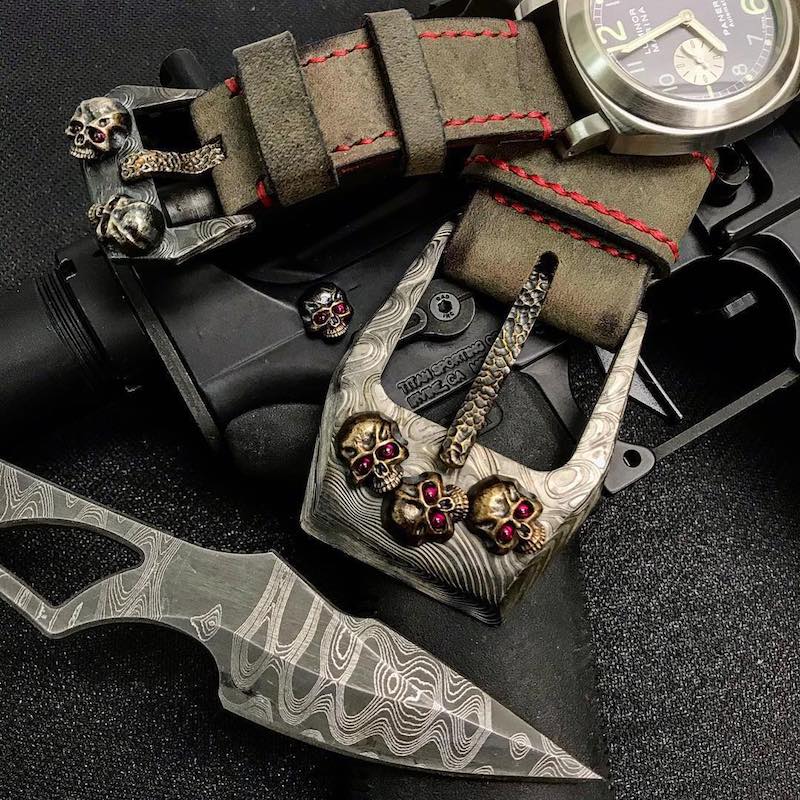 Über die Führung eines erfolgreichen Unternehmens:
Über die Führung eines erfolgreichen Unternehmens:
Curtis: Eine Lektion, die ich als junger Privatdetektiv gelernt habe, war: „Kenne dich selbst und suche nach Verbesserung.“ Kennen deine Stärken und Schwächen. Arbeite daran, deine Schwäche zu verbessern oder lass einfach jemand anderen sich um diese Aufgaben kümmern. Es gibt Dinge, in denen ich gut bin, Dinge, in denen Mark gut ist, also reden wir darüber und lernen ständig voneinander.
Mark: Ich setze es mit Foreign Internal Defense (FID) gleich. Man baut gute Beziehungen zu Lieferanten und Händlern auf und pflegt diese, indem man ihr Betriebsumfeld verstehen. Zu wissen, was für sie im Voraus wichtig ist, wird dazu beitragen, gegenseitig vorteilhafte Beziehungen aufzubauen.
Curtis: Soldaten der Spezialeinheiten können besonders andere beim Aufbau von Beziehungen zermalmen, weil es das ist, wozu sie ausgebildet sind. Befrage deine Lieferanten und Verkäufer, bevor du dich entscheidest, mit ihnen Geschäfte zu machen.
Über das Anfangen von etwas Neuem:
Curtis: Zu viele Leute lassen die Angst das antreiben, was sie tun. Du kannst nicht zulassen, dass die Angst das treibt, was du tust; irgendwann wirst du ein Risiko eingehen müssen, auch wenn du vielleicht nicht das Gefühl hast, dass du alles weißt, was du wissen musst.
Wir hatten ein Sprichwort in der 1. SFG (A): „Seht es einmal, macht es einmal, lehrt es einmal.“ Es ist eine Methodik, die tatsächlich funktioniert. Ich war frisch vom Special Forces Qualification Course (SFQC), als wir nach Indonesien entsandt wurden. Ich wurde mit dem Aufbau des Indonesia Mortar Leader Course beauftragt und musste ihn in meiner Zielsprache unterrichten! Das einzige Mal, als ich mit Mörsern gearbeitet hatte, war der Kurs 18B[SF Weapons Sergeant], aber ich habe mehr und mehr durch den Unterricht gelernt und war erfolgreich dabei, den Kurs aufzubauen. Wenn die Angst die Überhand bekommen hätte, wäre es eine Katastrophe gewesen.
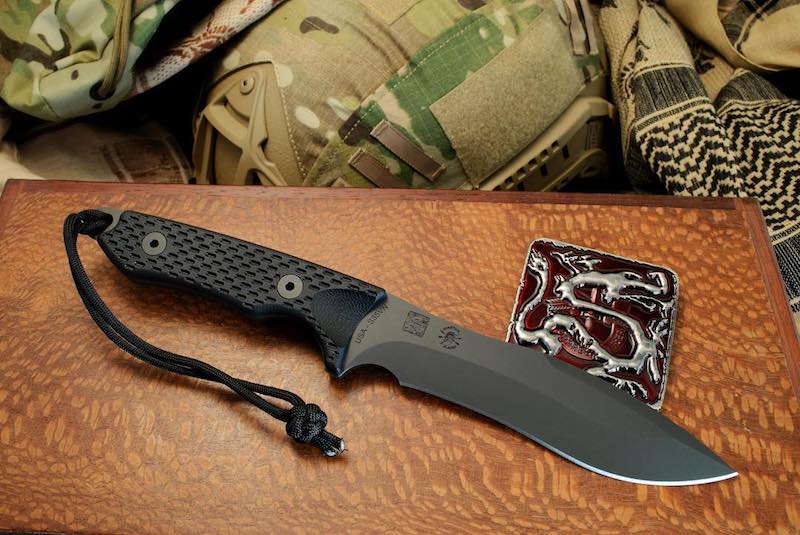 Über Risikomanagement und Fehler:
Über Risikomanagement und Fehler:
Mark: Jene zusammengesetzten Risikomanagementblätter, die jeder in der Armee hasst, funktionieren wirklich. Risikoanalyse und Risikomanagement funktionieren!
Erstelle P.A.C.E. Pläne (Primary, Alternate, Contingency, Emergency). Jeder scheitert irgendwann, wenn man also einen Fehler macht und das etwas Geld kostet, saugt man es auf, lernt daraus und macht weiter.
Von Geld und Erfolg:
Mark: Geld ist ein Nebenprodukt des Erfolgs. Mache dir keine Sorgen darüber, wie viel Geld du verdienen wirst, mache dir Sorgen, erfolgreich zu werden und du wirst Geld verdienen.
Curtis: Tue gute Dinge, behandle Menschen richtig, behandle deinen Kunden richtig.
Mark: Du musst in allem, was du anbietest, Qualität und einen außergewöhnlichen Kundenservice bieten. Übertriffst du die Erwartungen nur leicht, wirst du treue Kunden, Lieferanten und Händler haben.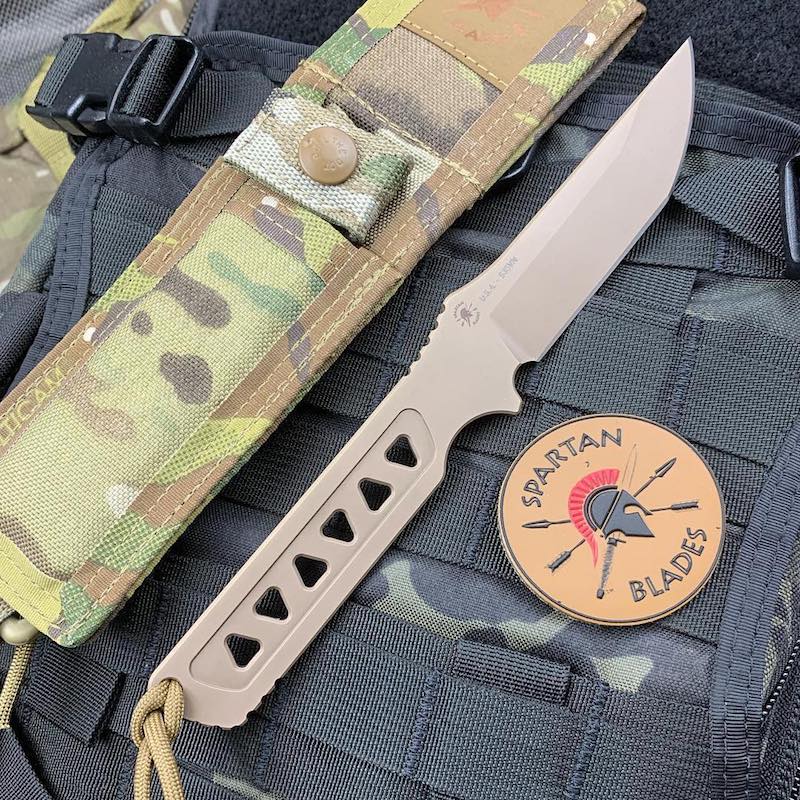 Über Geschäftspartnerschaften:
Über Geschäftspartnerschaften:
Mark: Mach es mit so wenig Partnern wie möglich, da es den Planungs- und Entscheidungsprozess erleichtert. Wir lassen unsere Persönlichkeiten und Talente entscheiden, was wir bei Spartan Blades™ tun. Curtis hat mehr Erfahrung mit Messerdesign und Marketing. Ich bin mehr ein Planer, linearer Denker, Einkäufer, etc. Ich habe etwas von dem gelernt, was Curtis weiß, aber Curtis ist offensichtlich in einigen Bereichen besser und ich bin damit einverstanden. Wir vergleichen es irgendwie mit der linken und rechten Gehirnhälfte.
Curtis: Wir mögen uns und verstehen uns gut. Viele erfolgreiche Unternehmen scheitern, weil Menschen nicht miteinander auskommen. Wähle jemanden, den du kennst, wähle jemanden, dem du vertraust.
Mark: Wie in einer Ehe, wähle weise, weil du vielleicht für lange Zeit am Partner festhängst.
Curtis: Wirf einen Blick auf ein Special Forces Team. Im Allgemeinen gibt es in der Regel ein oder zwei „Superstars“, wie es jeder sein will. Dann gibt es 7-8 „gute Kerle“, einen sprichwörtlichen „Drecksack“, den man nicht feuern kann, weil er das Minimum erreicht, und einen Kerl, den man nicht erwarten kann, aus dem Team zu feuern. Dieses Wahrnehmung geht auf antik-griechische Krieger zurück und gilt auch heute noch für Unternehmen. Jedes Team, egal wie groß oder klein, hat diese Leute. Wenn du kannst, wähle den Superstar. Das ist die Person, die du als Geschäftspartner suchst.
Wer sollte ein Unternehmen NICHT führen:
Mark: Einige Leute sind einfach nicht dafür geschaffen, Anführer zu sein. Wenn du ein Unternehmen führst, bist du eine Führungskraft, ob es dir gefällt oder nicht. Wenn du kein Anführer sein willst, gründe kein Unternehmen. Es ist okay, sei ein Mittelsmann, es gibt ganze Industrien, die von ihnen geführt werden.
Curtis: Nochmals, es geht darauf zurück, sich selbst zu kennen. Identifiziere die Dinge, in denen du nicht gut bist, und sei ehrlich zu dir selbst. Wenn du trotzdem ein Unternehmen besitzen möchtest, aber in der täglichen Führungsarbeit schwach bist, startest du das Unternehmen und stellst dann einen Manager ein, der den täglichen Betrieb übernimmt.
Über anhaltendes Wachstum:
Mark: In den ersten drei Jahren haben wir unseren Fünf-Jahres-Plan aus dem Wasser geblasen. Wir haben jetzt Händler auf der ganzen Welt. Wir überprüfen unsere Geschäftspläne regelmäßig, formell und informell. Wenn du eine Kernkompetenz deines Unternehmens ändern willst, schreibe definitiv einen neuen Businessplan. Schriftliche Pläne enthalten mehr Informationen als mündliche Gespräche.
Curtis: Wir haben gesehen, wie Unternehmen mit großartigen Produkten scheitern, weil sie ein so schnelles Wachstum hatten, dass sie nicht mit der Nachfrage Schritt halten konnten, also sagten sie einfach „Vergiss es“ und kündigten. Kontrolliertes Wachstum rettet ein Unternehmen.
Mark: Zum Beispiel, als wir weiter gewachsen sind, hatten wir Hebel, die wir ziehen konnten, um bei Bedarf mehr Kapazität oder Notfallhilfe zu aktivieren, insbesondere Hardware zum Bau der Messer. Wir haben diese Eventualitäten mit P.A.C.E. geplant. Du musst deine Lieferanten und Händler glücklich machen, da eine verpasste Bestellung das Wachstum wirklich behindern kann.
Curtis: Wir haben auch unsere Kosten begrenzt. Wir haben nur das gekauft, was wir brauchen, und kaufen es auch weiterhin. Anstatt uns selbst mehr im Voraus zu bezahlen oder uns selbst Boni zu geben, haben wir Geld in unser Geschäft reinvestiert. Unser Einkommen blieb während des gesamten Wachstums gleich. Dadurch haben wir qualitativ hochwertige Produkte mit pünktlicher Lieferung an unsere Kunden ausliefern können. Vergiss nicht: niemand bezahlt dich, bis du geliefert hast. Halte den Cashflow in Gang, plane deine Züge und deine Gewinne werden später kommen.
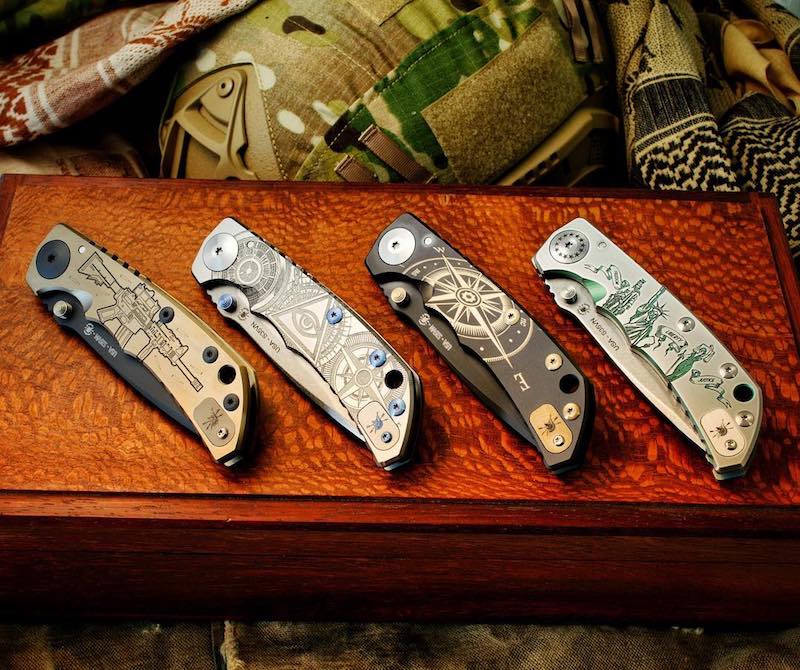 Über die Zukunft:
Über die Zukunft:
Mark: Wir schauen uns neue Modelle an, neue Kapazitäten mit neuen Maschinen und bringen die Dinge auf ein neues Niveau. Wir könnten uns auf ein neues Produkt konzentrieren – aber wir schreiben einen neuen Businessplan, um sicherzustellen, dass es Sinn macht.
Curtis: Unser Spartan Harsey Folder wurde gerade zum American-Made Knife of the Year ernannt. Wir können tatsächlich sagen, dass wir das beste Messer in Amerika herstellen! Es ist unsere vierte Auszeichnung in acht Jahren und wir freuen uns darauf, mehr zu gewinnen.
SPARTAN BLADES im Internet: www.spartanbladesusa.com
Dieser Artikel erschien erstmals am 1. September 2016 im The Havok Journal. Übersetzung mit freundlicher Genehmigung.
SPARTAN BLADES gibt es in Deutschland bei G-GEAR
SPARTANAT ist das Online-Magazin für Military News, Tactical Life, Gear & Reviews.
Schickt uns eure News: [email protected]
Werbung
Hol Dir den wöchentlichen SPARTANAT-Newsletter.
Dein Bonus: das gratis E-Book von SPARTANAT.


